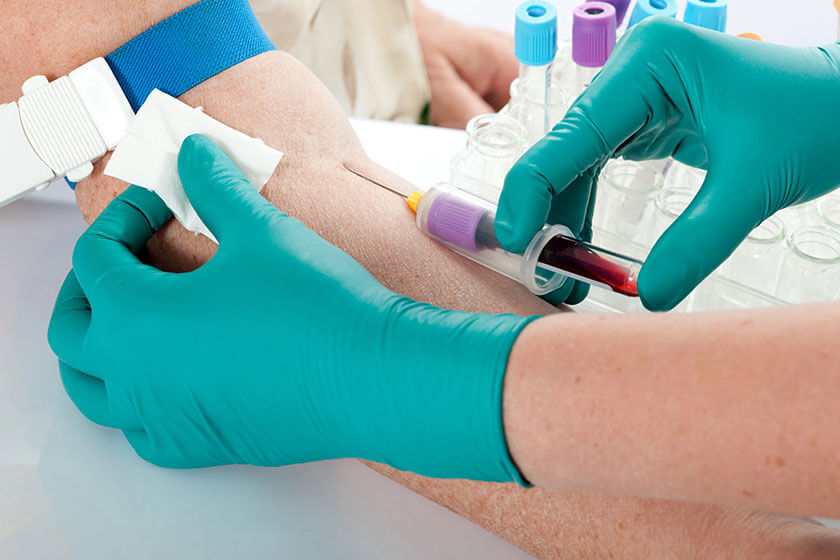30 Sep Phlebotomist vs Phlebotomy Technician: Which Is Best?

Choosing a career in the medical field often comes down to understanding specific roles and the paths they offer. If you’re considering a future in phlebotomy, you might wonder about phlebotomist vs. phlebotomy technician. Both play crucial roles in healthcare, focusing on blood collection and patient interaction, but they differ in responsibilities, training, and career opportunities. This guide will help you decide which path is best for you.
Understanding the Role of a Phlebotomist
A phlebotomist is a healthcare professional primarily responsible for drawing blood from patients for medical testing, transfusions, research, or donations. Their key duties include identifying patients, ensuring proper blood draw techniques, labeling specimens accurately, and maintaining patient data. Phlebotomists must be skilled in creating a safe and hygienic environment to prevent contamination and ensure patient comfort during the procedure.
Becoming a phlebotomist typically requires completing a phlebotomy training program that can last several months to a year. Many states require phlebotomists to be certified, which involves passing an exam from a recognized body.
Exploring the Phlebotomy Technician Position
Phlebotomy technicians are specialized healthcare workers whose primary role extends beyond drawing blood. They also process and analyze collected specimens. This role requires a deeper understanding of lab technology and procedures to ensure the accuracy and reliability of test results.
The educational requirements for phlebotomy technicians can be more extensive than those for a basic phlebotomist. Many employers prefer candidates who have completed longer training programs or associate degrees in phlebotomy or medical technology. Comprehensive training ensures that technicians are proficient in blood collection, using laboratory equipment, and following complex testing protocols.
Key Differences in Responsibilities
While both roles involve direct patient interaction and blood collection, phlebotomy technicians often take on additional responsibilities in the lab. These include preparing blood samples for analysis, operating centrifuges, and performing basic lab tests. The increased responsibilities require higher technical proficiency and attention to detail.
Work Environments
Phlebotomists typically work in hospitals, blood donation centers, and medical clinics, while phlebotomy technicians might find opportunities in larger hospital laboratories or specialized diagnostic labs. The choice of workplace can significantly influence daily duties and the pace of work.
Career Prospects and Advancement
The demand for phlebotomists and phlebotomy technicians is growing due to the increasing need for diagnostic services and medical testing. Career advancement for phlebotomists often involves additional certification and moving into phlebotomy technician or supervisor roles. With their broader skill set, technicians may advance to laboratory management positions or specialize in particular types of lab analysis.
Salary Expectations
Generally, phlebotomy technicians earn higher salaries than phlebotomists due to their additional skills and responsibilities. According to industry data, the average salary for phlebotomy technicians is often 10-20% higher than for phlebotomists.
Choosing the Right Path for You
Whether to become a phlebotomist or a phlebotomy technician should be based on your career goals, interest in medical technology, and willingness to engage in further education. Becoming a phlebotomist might be the right path if you enjoy direct patient care and quick training. However, if you are interested in a more technical role with greater responsibilities, pursuing a career as a phlebotomy technician might be more suitable.
Training Opportunities
For those ready to start their journey, exploring classes at Phlebotomy Training Specialists can provide you with the necessary education and resources to begin your career in either role.
Both phlebotomists and phlebotomy technicians offer valuable skills to the healthcare industry, with each role serving critical functions in patient care and medical testing. When deciding between phlebotomist vs phlebotomy technician, your decision should align with your professional aspirations, desired level of interaction with patients, and interest in laboratory work.
Interested in taking the first step towards a fulfilling career in phlebotomy? Phlebotomy Training Specialists is dedicated to providing you with the best resources, from top-notch training guides to comprehensive career advice. Visit us today to discover how we can help you excel in your chosen path, whether you’re just starting or looking to advance your career. Let us guide you through every step of your journey in the field of phlebotomy.
